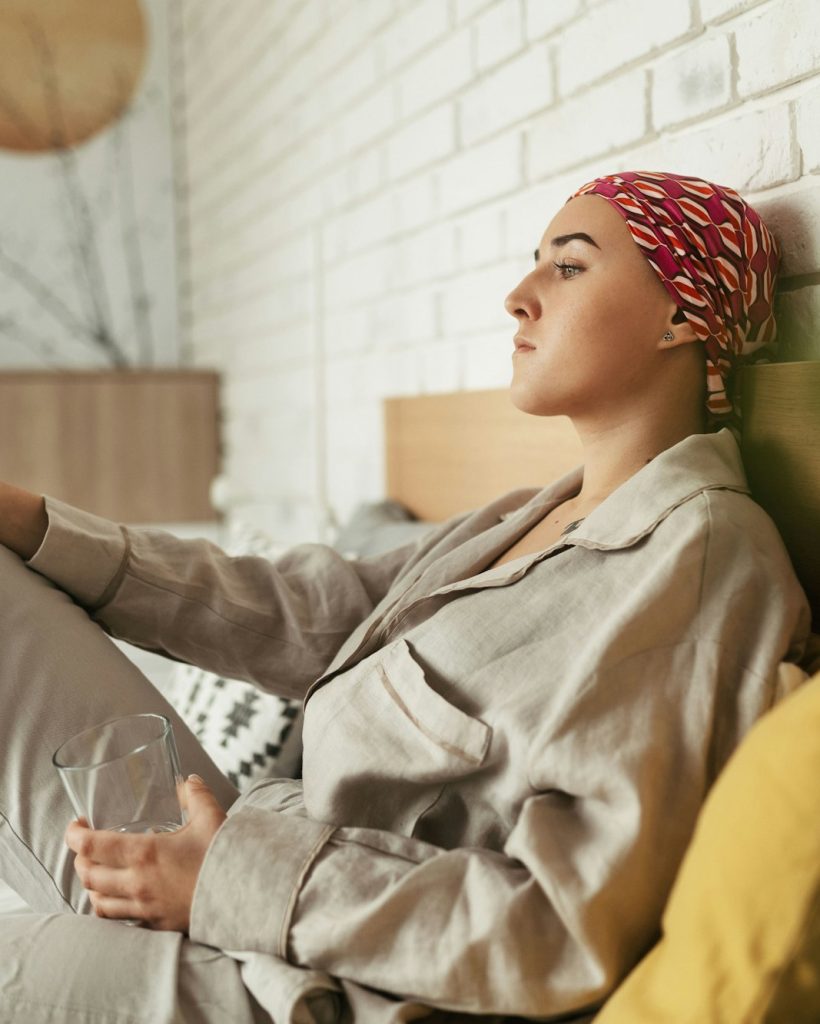- HOME
- Sleep Centers
- PATIENT PACKS
- TELEMED@HOME
- SLEEP DISORDERS
- SLEEP APNEA
- PEDIATRIC SLEEP APNEA
- INSOMNIA
- NARCOLEPSY
- SLEEP AND CANCER
- WHAT TO EXPECT FROM YOUR SLEEP APNEA
- WHAT IS RESTLESS LEGS SYNDROME
- WHAT IS OBSTRUCTIVE SLEEP APNEA
- WHAT TO EXPECT FROM YOUR HOME SLEEP APNEA TEST
- WHAT ARE PARASOMNIAS
- TEEN DROWSY DRIVING
- SLEEP AND SLEEP DISORDERS IN WOMEN
- SLEEP AND PREGNANCY
- OUR TEAM
- INSPIRE
- HOME SLEEP TEST
- CONTACT
SLEEP AND CANCER
The importance of sleep and understanding sleeping patterns is vital to us. That’s whybelow, we offered multiple links and sites to expand your knowledge as well.
- Home
- SLEEP AND CANCER
DISORDERS
SLEEP AND CANCER
Quick Facts
Fewer hours of sleep and poor sleep quality have been linked to many medical conditions including cancer. Sleep problems may be caused by the emotional toll of a cancer diagnosis, the physical impact of its treatment, and the side effects of medications. Disrupted sleep can linger long after cancer treatment ends. Quality sleep is needed for healing, good immune function, and mental health. Poor sleep can impair quality of life, ability to fight infections, and recover from treatments.
Key Points:
- Cancer and its treatment may cause or worsen insomnia and other sleep problems
- Common factors linked to poor sleep include physical and emotional symptoms from cancer and its treatments such as pain, nausea, fatigue, anxiety and depression.
- Managing the physical and emotional causes of poor sleep and using good sleep habits can improve sleep while dealing with cancer.
- It is important to talk with healthcare providers about sleep problems caused by cancer.
Am I At Risk:
- People who experience pain, nausea, fatigue or other symptoms from cancer and treatment may have difficulty falling asleep or staying asleep.
- Steroids prescribed to ease chemotherapy-related nausea and vomiting may cause insomnia.
- Menopause brought on by cancer treatments can cause or worsen sleep problems.
- Cancer treatments often cause daytime fatigue. Napping or sleeping during the day can lead to difficulty falling asleep and staying asleep at night.
- Worry, anxiety, and depression can interfere with sleep.
- Lack of exercise or reduced physical activity can affect sleep quality.

Ready for a Better Night’s Sleep?
Call us now to schedule your appointment with New Mexico Sleep Labs. Our expert team is here to help you achieve restful, restorative sleep and improve your overall health. Don’t wait—take the first step towards better sleep today
General Overview
Most people need at least 7 hours of sleep a night. As the body repairs itself during cancer treatment, the need for sleep may increase. Poor sleep can be an unwanted side effect of cancer treatments. Medications prescribed to reduce the side effects of surgery, chemotherapy or radiation therapy can also impact sleep quantity and quality.
Sleep-disrupting side effects include:
- Fatigue
- Pain
- Night sweats or hot flashes
- Nausea and other problems such as diarrhea and constipation
- Worry, anxiety and depression
Tips:
Good sleep habits include keeping a regular sleep schedule, avoiding stimulants and alcohol near bedtime, turning off electronic devices in the bedroom, and providing a comfortable place to sleep. Other tips for those with cancer include:
- Physical activity can help promote healthy sleep and lessen fatigue.
- If pain is the problem, take prescribed medication and implement other pain control strategies as directed, particularly before bedtime.
- Sleeping in layers of clothing and bedding can reduce the sleep disruption from night sweats or hot flashes.
- If nausea, diarrhea or constipation interferes with sleep, discuss these problems with your doctor.
- Avoid stressful activities just before you go to bed and create a soothing bedtime routine.
Next Steps:
- It is important to talk with your doctor about your sleep concerns. Be sure to mention it to your doctor if poor sleep interferes with daytime activities and your ability to function.
- Get tested for sleep disorders such as sleep apnea if recommended by your doctor.
- Review all your cancer treatments, medications, and herbal aids with your doctor and talk about how to manage sleep-related side effects.


Facility Member
Accreditation
Since 1977, the American Academy of Sleep Medicine (AASM) Standards for Accreditation have been the gold standard by which the medical community and the public evaluate sleep medicine facilities. Achieving AASM accreditation demonstrates a sleep medicine provider’s commitment to high quality, patient-centered care through adherence to these standards.
